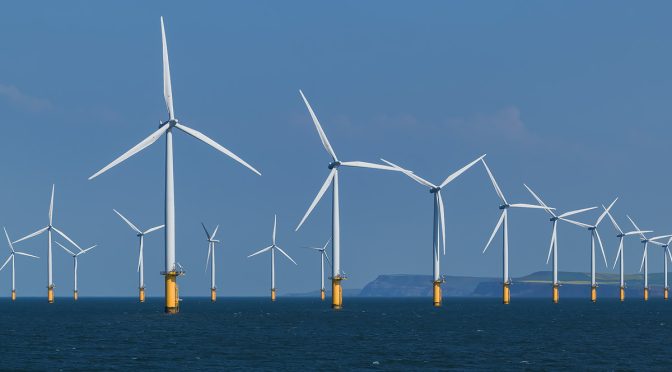Atlantic Canada has a unique opportunity to harness the power of offshore wind energy and become a leading player in the transition to green energy with wind turbines. According to a recent report from the Public Policy Forum, Atlantic Canada has the potential to develop 15 gigawatts (GW) of offshore wind, which could generate enough electricity to power six million homes and create a major energy export industry for the region.
Offshore wind energy is a climate-friendly energy source that produces minimal CO2 emissions. In fact, wind generates only about 10 grams of CO2 per kilowatt hour of electricity generated, making it one of the cleanest energy sources available. Additionally, offshore wind turbines tend to be larger and more efficient than their onshore counterparts, generating more electricity and taking advantage of the stronger, more consistent winds found offshore.
One of the important advantages of offshore wind in Atlantic Canada is the abundance of strong winds, especially during the winter when electricity demand is highest. This makes the region an ideal place to generate clean, reliable energy.
While there are environmental considerations associated with offshore wind energy, such as impacts on marine life and birds, responsible planning and turbine spacing can mitigate these concerns. The North Sea offers a successful example of offshore wind farms that have had limited impact on the environment and marine life.
The economic benefits of offshore wind development in Atlantic Canada are substantial. The report estimates that the development of 15 GW of offshore wind could create up to 30,000 jobs over several decades. This would support the growth of a supply chain ecosystem, including component manufacturing and offshore services, and attract new manufacturing investment to the region.
To fully realize the potential of offshore wind, both the federal and provincial governments must provide policy and regulatory support. This includes establishing clear and transparent regulations, simplified licensing processes and comprehensive impact assessments.
By seizing this opportunity, Atlantic Canada can become a leader in green energy, contribute to the fight against climate change, and create a sustainable economic future for the region.
Frequently asked questions
What is offshore wind energy?
Offshore wind energy refers to the generation of electricity from wind turbines installed in bodies of water, such as oceans or lakes. These turbines capture the power of the wind and convert it into clean, renewable energy.
Why is offshore wind energy advantageous?
Offshore wind energy offers several advantages. Firstly, offshore winds tend to be stronger and more consistent, allowing for more efficient electricity generation. Second, offshore wind farms do not conflict with land use, reducing public opposition and environmental impacts. Finally, offshore wind energy contributes to reducing CO2 emissions and combating climate change.
What are the economic benefits of offshore wind energy in Atlantic Canada?
The development of offshore wind energy in Atlantic Canada has the potential to create thousands of new jobs over several decades. It can also attract new investment in manufacturing and support the growth of a supply chain ecosystem, contributing to the economic development and prosperity of the region.
What is the environmental impact of offshore wind energy?
While offshore wind has environmental considerations, such as impacts on marine life and birds, responsible planning and turbine spacing can help mitigate these concerns. Studies have shown that well-designed offshore wind farms can have a limited impact on the environment and marine life.
What kind of political and regulatory support is needed for offshore wind?
To fully realize the potential of offshore wind, governments must establish clear and transparent regulations, streamline licensing processes and conduct comprehensive impact assessments. These measures will create a favorable environment for investment in offshore wind energy and ensure responsible and sustainable development.
By Daniel Hall


